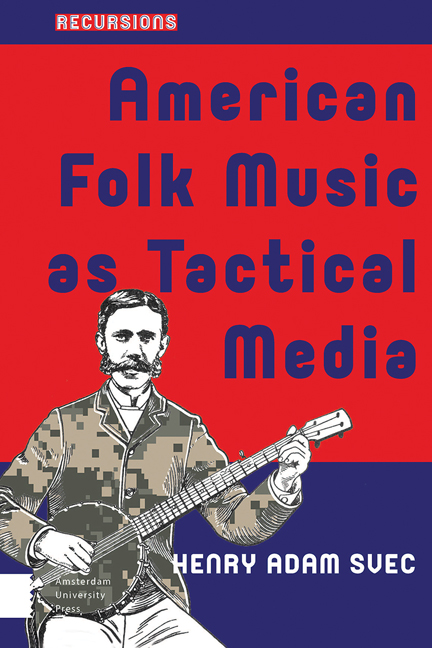Book contents
- Frontmatter
- Contents
- Acknowledgments
- Introduction
- 1 Alan Lomax’s Deep Rivers of Digitality
- 2 Pete Seeger’s Time-Biased Tactics
- 3 Bob Dylan’s Noisy Faces
- 4 A Folk Approach to Imaginary Media
- 5 Another Authentic Folk Is Possible
- 6 American Folk Music as Strategic Media
- Epilogue
- Notes
- Lyrical Credits
- References
- Index
5 - Another Authentic Folk Is Possible
Published online by Cambridge University Press: 28 January 2021
- Frontmatter
- Contents
- Acknowledgments
- Introduction
- 1 Alan Lomax’s Deep Rivers of Digitality
- 2 Pete Seeger’s Time-Biased Tactics
- 3 Bob Dylan’s Noisy Faces
- 4 A Folk Approach to Imaginary Media
- 5 Another Authentic Folk Is Possible
- 6 American Folk Music as Strategic Media
- Epilogue
- Notes
- Lyrical Credits
- References
- Index
Summary
‘[A]ttach yourself to what you feel to be true. Begin there.’
The Invisible CommitteeThe synergies moving across the histories of American folk music, digital culture, and (tactical) media theory particularly coalesce in a few of the moments that have appeared above: Dylan getting noisy on his typewriter, Lomax plugging in his soon-to-be-forgotten ‘Global Jukebox’, Seeger calling for a hammer and for a bell, the members of the New Brunswick Laboratory of Imaginary Media Research + Design grabbing pencils and attempting to generate new channels. In these diagrams of connection, conflicting desires and anxieties have sounded out, and persistent questions have been posed if not definitively answered. What does it mean to ‘be real’? How can one become ‘real’, not alone, but rather in conjunction with the ‘becoming real’ of others? How are we to understand, and indeed nurture, the material media ecologies that have defined and sustained such projects?
Some readers may find all this reference to ‘the real’ alarming, and rightfully so, for the concept of ‘authenticity’ has had a troublesome history. Much of this trouble has stemmed from the concept of ‘the folk’. Connections between racist and sexist notions of authenticity and the rise and more recent recombinations of fascism need not be recapped in detail here; suffice it to say that ‘authenticity’ has often been wielded as a dehumanizing weapon, a history that many scholars in the humanities and social sciences have attempted to critique and to trace. Participants in the folk revival were well aware of the problematic legacies of their traditions as well. In a short piece written around 1942, entitled ‘Progressive and Fascists Both Sing Folk Songs’, Pete Seeger considers how the Nazis relied on ‘static’ and ‘naïve’ folk visions, whereas the progressive movement of which he was a part ‘responds most keenly to the expanding, militant side’.
Despite Seeger's demonstrable openness as a folk theorist, however, his own approach famously appeared stale to the burgeoning counterculture that he had helped to form.
- Type
- Chapter
- Information
- American Folk Music as Tactical Media , pp. 107 - 126Publisher: Amsterdam University PressPrint publication year: 2017



